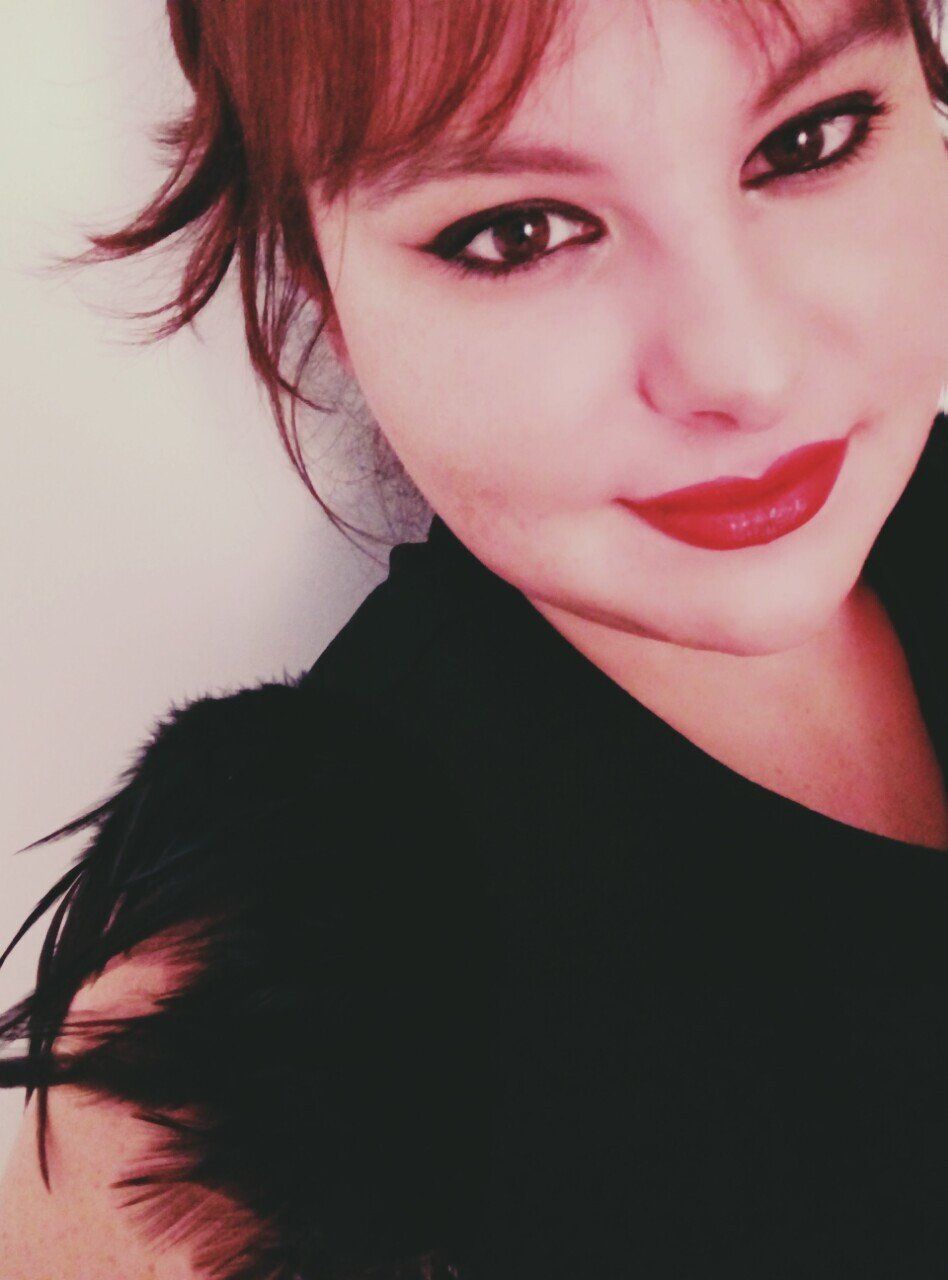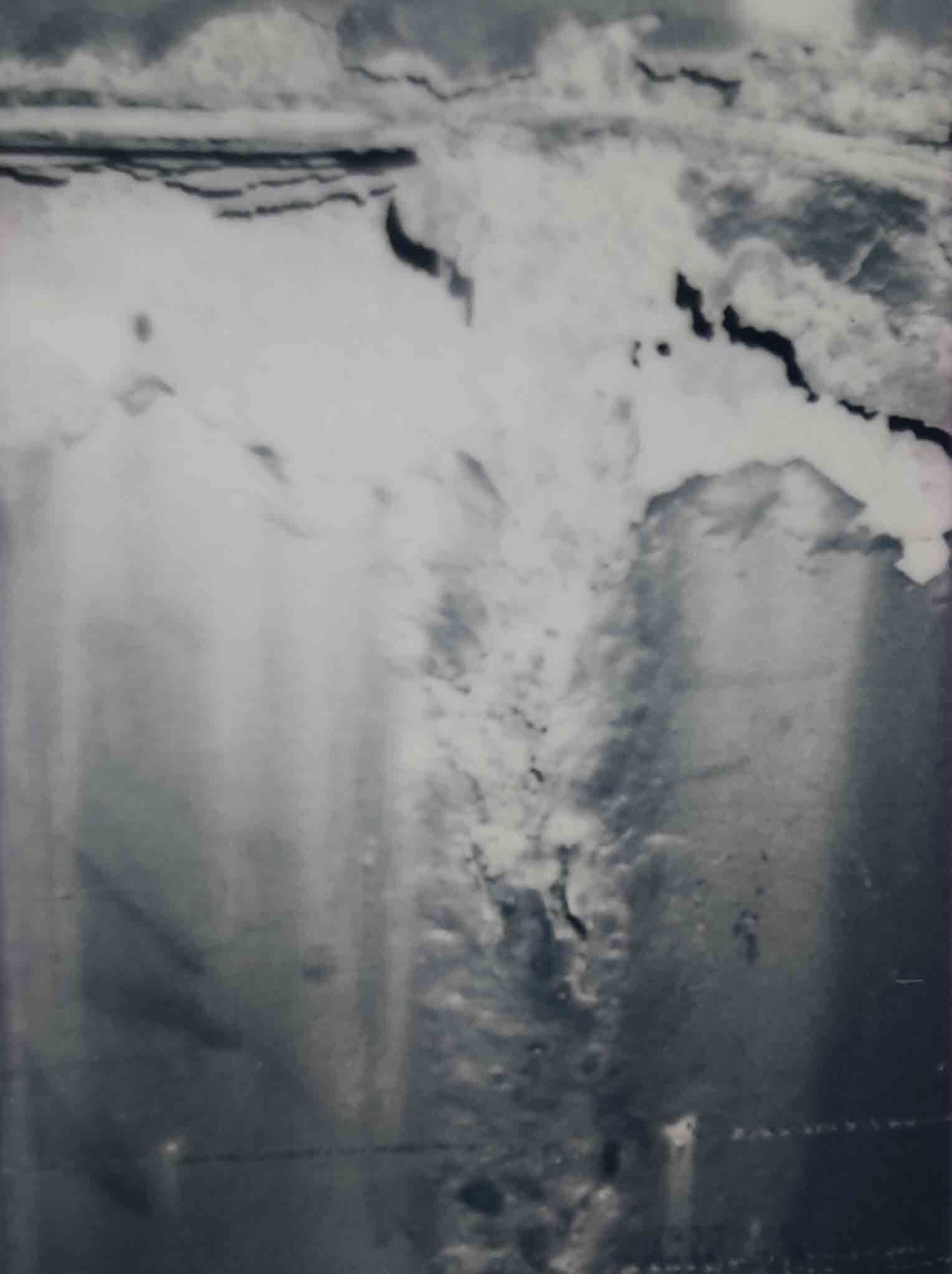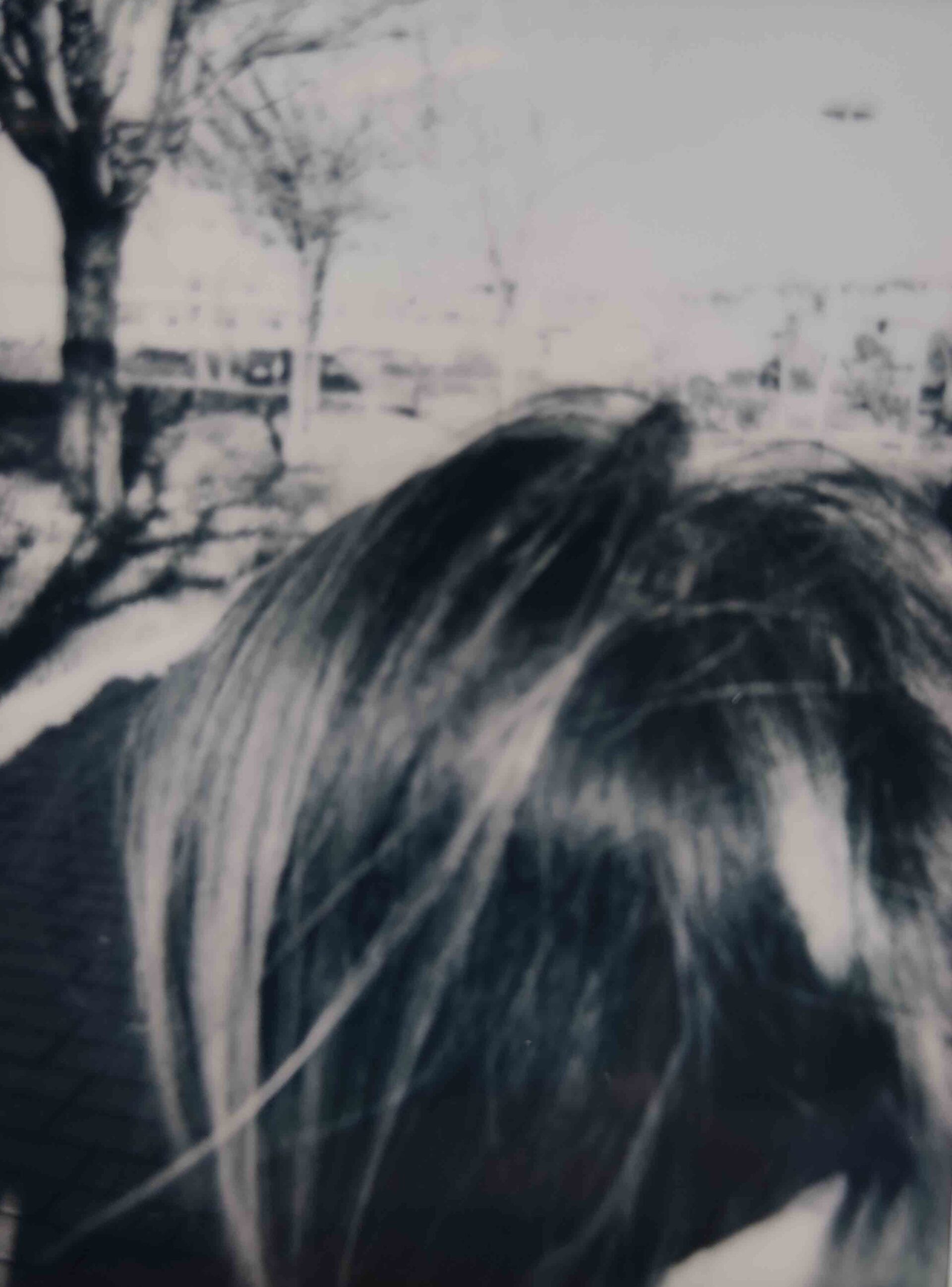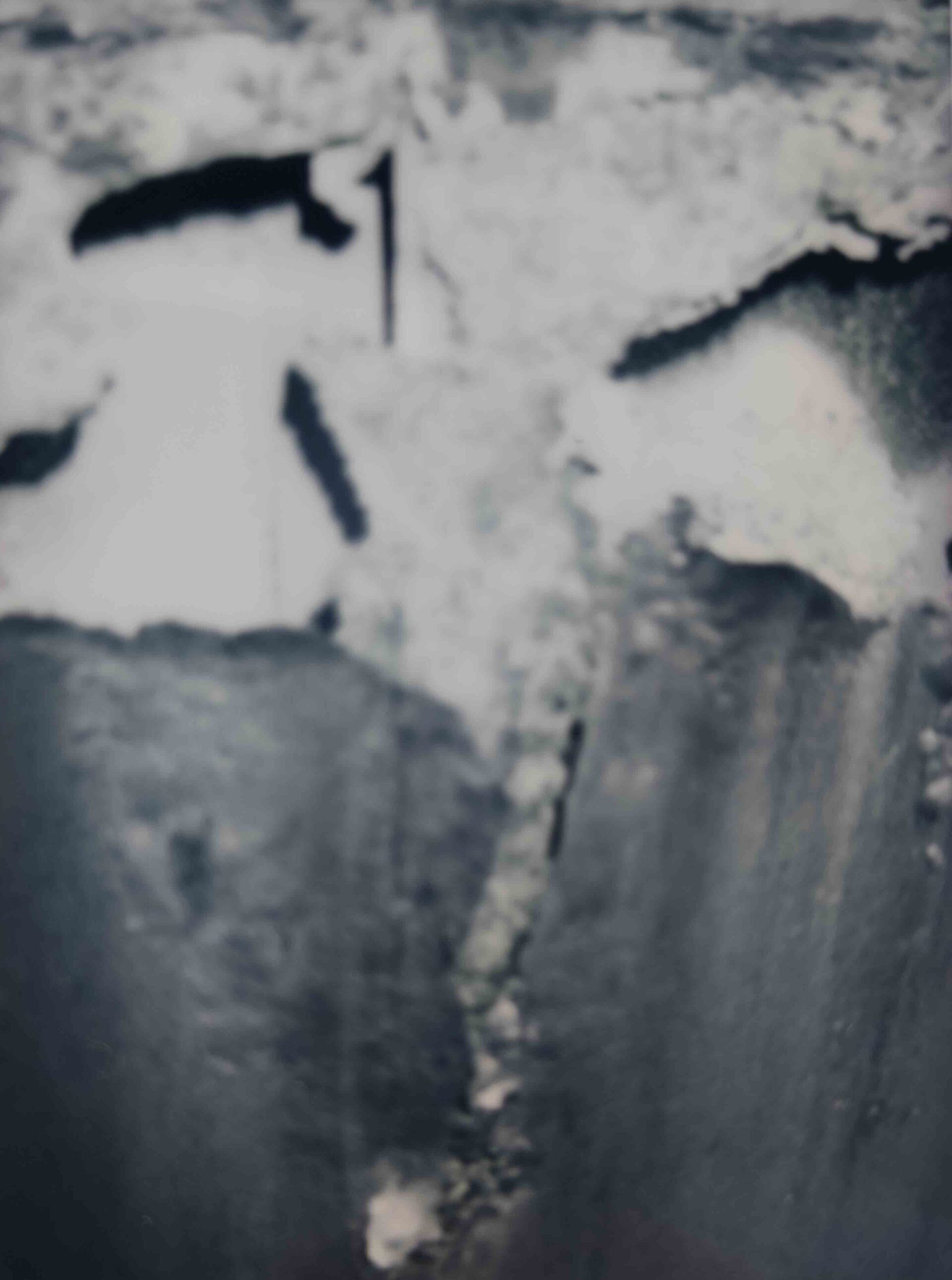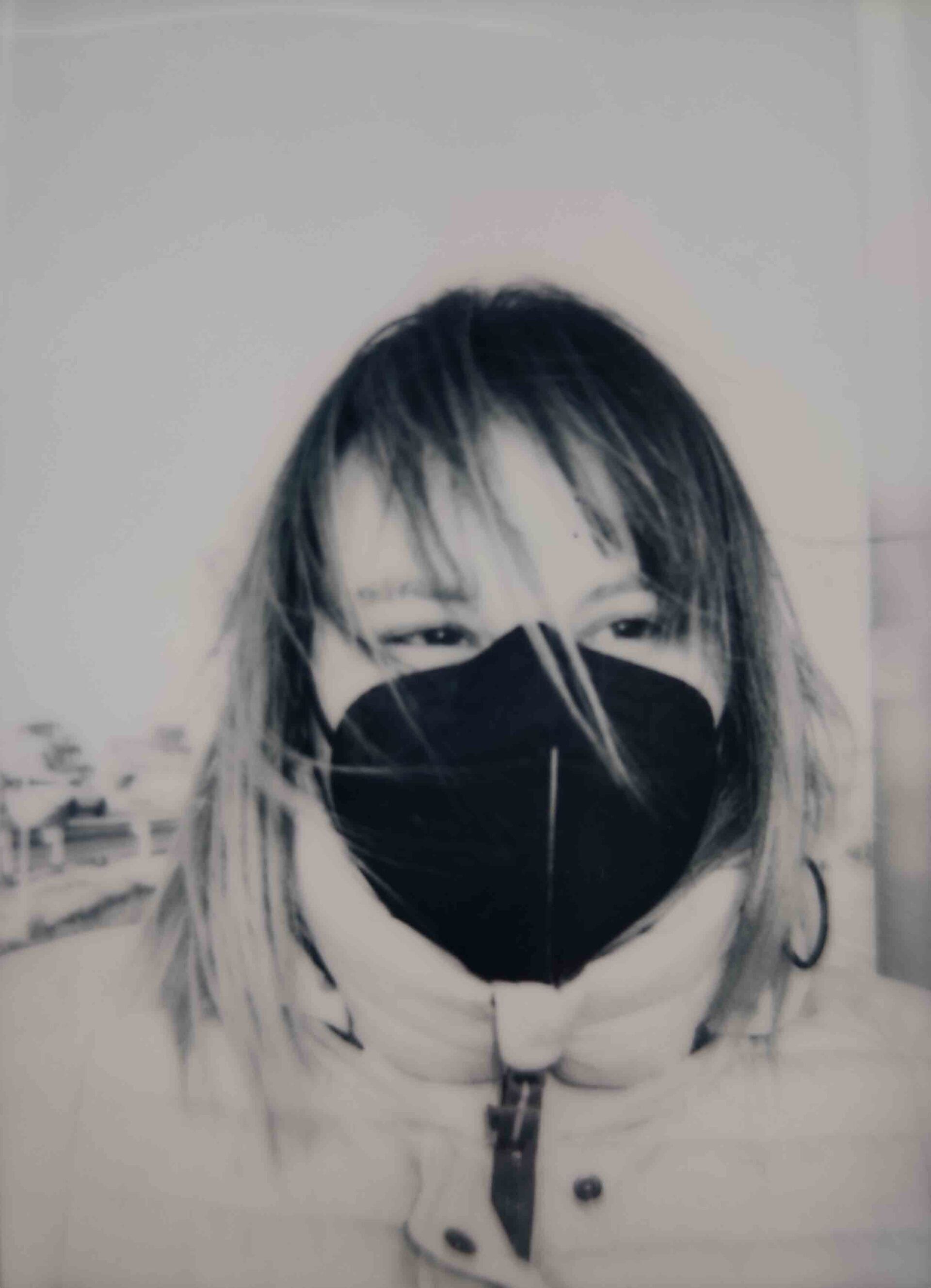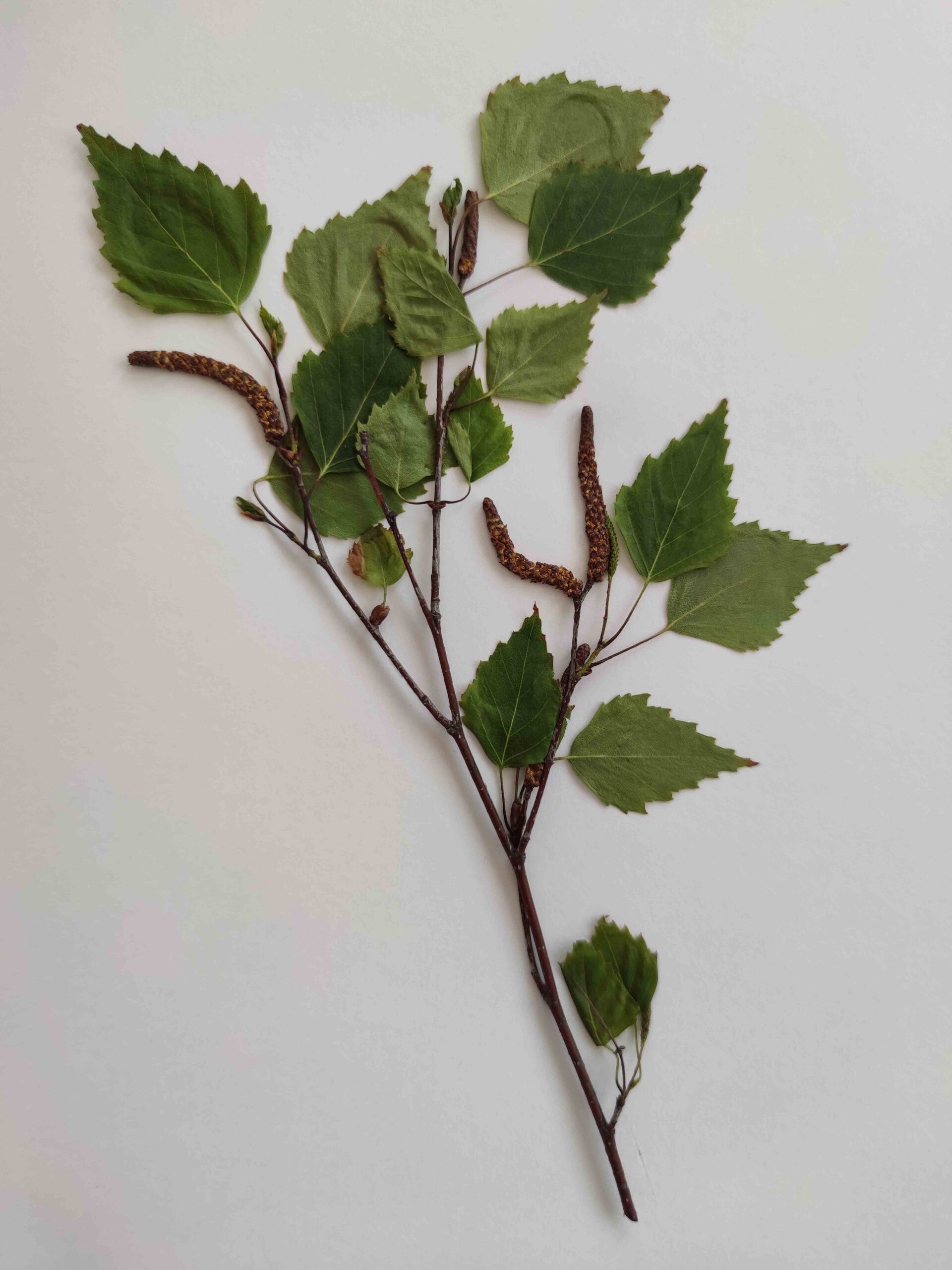Maria Centeno
Santander 1985. She studied Fine Arts at the University of the Basque Country (Graphic Arts Specialty).
A founding member of ACAV, he also collaborates as an artist in the Atelier Art Center of the Bathco company.
Since 2017, as a parallel activity to her personal projects, she has worked as a duo with the visual artist Emeric Minaya, generating works and joint works whose common denominator is the union of the use of traditional techniques with the application of new technologies.
She has exhibited her work in individual and group exhibitions and at national and international fairs, among which ArteSantander, FIG Bilbao, or Art Basel Miami stand out.
Her works and designs have traveled to Bologna, Mexico, Miami, Dublin, China or Dubai.
She has won several awards and distinctions, among which the international Platinum A Design Award stands out for her work in the Santander World public art project.
All that remains (The Way - 03/2024)
I know some names, not the ones who named these people. I know my grandparents. I don't remember their voices. Sometimes I do, just an echo. I do remember the smell of my maternal grandfather, his silences. His tears when he listened to music that always impressed me and now I understand.
I don't know my grandmothers. One of them wasn't there when I was born. Her shadow is long. Her mistakes too. Her love even longer. Blue eyes that I can't see, white skin that I can't hug. Jo-se-fi-na. She sounds thin, light and pale like a March morning. Like the day she died, like the day I was born.
Rosa, is the name of the other one. Rosa that stings to the touch. She's turned ninety. I look a lot like her. Almost two drops of water. She's a stranger. I was the only granddaughter who called her by her name; out of imitation, I stopped doing it. Sometimes we talk. Little time. More is counterproductive. But maybe it was a reparation. I don't know. I don't think I want to know. I rarely visit her. I think she doesn't know how to love. We look alike. It's possible that I don't know either. Roses have thorns so that no one can hurt them and it's useless.
My maternal grandfather had a meadow that houses oaks and beeches. I never visit it. It saddens me to step on it. When I was a child there were cows there; he would mow it with the scythe. Shisssssss, shaaaas, shiiiiiis, shaaaaaas. A lot of effort, endless days. I remember the smell of the cut grass. He hardly spoke, he would just tell me: Watch out, girl! Stay away from the scythe! With the sound of the scythe in the background, I would fill the time by accumulating daisies. I would put them in my hair. I wanted him to finish mowing soon, so that I could make the long road home triumphant, sitting on top of the cart, with the melody of the horse's hooves against the pavement. I loved that feeling. It pains me to remember it too. On the way there was only the hollow, clicking sound of the animal. There were no words. Maybe some, but they could be dreamed. I called my grandfather Bi. His name was Pedro. Pe-dro, Pe-trus, Pie-dra. He was a strong man, yet resigned, with distant customs. He had no attachment to material things. He suffered bitterly. I know he loved me. I still have voiceless scenes of him, almost all of them shining. Like the shapeless beams of light that flicker in the pupils when you close your eyelids. Brilliant, fleeting, boundless. Now I give him everlasting flowers. Because they don't wither. They are white, pink, violet. Because like memories, they don't fade.
I haven't returned to the meadow. It's worth nothing. It means everything. I'd like to plant flowers in it. Flowers are worth nothing. They mean everything.
My paternal grandfather was a carpenter, like his father, like mine. He had curly hair. He smiled sometimes and always gave me a kiss when he saw me. He smelled of wood. He liked sweets. He built cages to catch goldfinches. He built cages, like his house. He caught goldfinches, like his own. Sometimes he gave me one of those little birds. They didn't sing. They were sad. Since he died, there is no one who makes those cages anymore. But they continue to build the other ones, the ones with foundations of shouts and hatred. In the summer he bought ice cream for my cousins and me. He didn't like anyone to bother him when he had dinner, he could get angry. To me he was just a small man, who smiled, and who kept old photographs. My grandfather's name was José. Nobody called him by his name.
In my paternal grandparents' house there are many stones. Stone houses, stone walls. If you lightly move the earth they appear broken, with many edges. They are always cold. Its humidity penetrates the bones and the will.
Near the house where my maternal grandfather was born, there is a river. The stones there are rounded, smooth. Time has wounded them. Time has polished them. They lack edges, they are deep, heavy and mute.
My home is irremediably built of those stones, and also of emptiness. I live there inside, standing, still, intangible; reflected in its windows with a bunch of everlasting flowers in my left hand.

Click on images for full view
This project does not intend to abandon the essence of the previous work (23 Minutes); but rather to continue with the idea of soliloquy out loud. However, it does seek to achieve another type of materialization, this time through the volume and the meaning of the materials themselves.
It is an exercise of delving into feelings and reflections around the idea of the absence of the grandfather figure; which contradictorily, irremediably populates everything everyday. This premise reinforces one of the recurring themes in the artist's work: the human being as an entity that models and in turn is modeled by external agents.
Through writing, the artist carries out an exercise in what is called: stream of consciousness. Words are the foundations that support the work. Personal experience is the oxygen that breathes into the narrative, which leads to various difficulties; mainly the management of sensations and feelings caused by memory, both of lucid and positive scenes, as well as abstract and hurtful silences. This is an exercise that requires a great psychic predisposition to withstand the emotional torrent. A predisposition to navigate, treasure and lift.
From this whole process a conceptual work is born that uses the assemblage technique. In which the materials contain all the significant power of words. The difficulty of the work lies in how the artist starts from a large block from which she has to strip away each insubstantial element to select the unique, concrete and essential.
Thus the work is composed of three sheets of methacrylate leaning against the wall and supported only by stone. The absence of color, the sensation of lightness and fragility of the material used, contrast with the stone that anchors the work to the ground and its arrangement in space as intangible tombstones.
“… a stone, a leaf, an unknown door; from a stone, a leaf,
a door. And from all the forgotten faces.
Naked and alone we arrived at exile. In her dark belly we did not know
the face of our mother; from the prison of her flesh we have arrived
at the atrocious and ineffable prison of this world.
Who among us has known his brother? Who among us
has looked into the heart of his father? Who among us is not
eternally imprisoned? Who among us is not eternally a stranger
who is alone?
Oh, what a waste of losses, in the hot labyrinths, lost,
among shining stars in this dull and tedious ash,
lost! Remembering without words we seek the great forgotten language,
the lost path to heaven, a stone, a leaf, an unknown door.
Where? When?
Lost, and mourned by the wind, return, spirit.”
“The Angel's Gaze” by Thomas Wolfe
23 Minutes (Traces - 03/2021)
23 Minutes is a work in the form of an Artist's Book produced in a period of five weeks.
Taking as a starting point the adaptation to the environment of the human being and the new reality in which she is trapped, the artist creates a series of short texts, necessarily born of experience, accompanied by sequences of images and some leaves and flowers collected by herself as a small herbarium. The elements that accompany the images have a deep meaning and are presented in perfect order of travel and experience.
Forced into self-imposed isolation to avoid possible contagion by the virus that has plunged the world into chaos, the artist maintains a brief period of time in contact with the outside world on a daily basis. Only 23 minutes from your home to your workplace. Space that transits and that is enough to see the sunrise, seeing a small piece of urban landscape without human presence that changes from night to day.
This artist's book collects in text form the thoughts that recur to the artist's mind on her journey in complete solitude. Seventeen black and white images taken by instant camera illustrate his words, in an improvised and sometimes informal way, nevertheless forming together with the different plants an orderly sequence of essays and thoughts.
The artist resorts again to a typical feature in her work: the sequenced work. The work is inspired by the concept of the late works of Monet, the literature of Walt Whitman or the poetics of the works of Emily Dickinson in whom it somehow feels reflected.
This artist's book, permeated with a deep feeling of melancholy, supposes a form of permitted pain. An exercise in which the artist flees from impermeability to feelings.
At the end of the day, the work is a learning journal in unfathomable solitude.
23 MINUTES (Complete text)
THE NIGHT
It's been a year since my only contact with the outside world is summed up in the short journey that I make on foot every morning to get to my place of work.
Only 23 minutes that I walk under the evanescent light of a few streetlights, while doing an introspection exercise like punishment.
Silence and darkness have taught me to see the nondescript landscape with new senses. Senses previously stunned by traffic noise or tomorrow's stress. "The future does not exist" I repeat myself every day, while almost in the dark I see how nature breaks the tiles, breaking through with the atrocious force of the desire to survive under any circumstance.
I have learned to interpret in the smell of the air, the rainy weather or the decrepit southern days that taste like dry leaves and have the touch of elephant skin, those hateful days of a thousand dry furrows that will confuse the mind.
Every ten tiles stepped on, I remember Dickinson's lyrics, his little world, his years of voluntary seclusion and his unfathomable world that increasingly resembles mine.
Those 23 minutes at night suffocate me in deep thoughts that take me away from everyday life to immerse myself in an unknown abyss and yet sometimes pleasant.
As I ignore the snails that carry their weight, I think of the people who hurt me and I am surprised to do so without hatred or regret, because I discovered that they were long ago forgiven, almost without wanting to ... Other times I think of my mother's hands when I I was a girl, in her big, always warm and soft hands that guided and supported me wherever I went. That sweet thought soon turns into a deep dark blue almost black, when I realize that those hands are now smaller, that time and work have made them rough and weak. Then I imagine the poor hands of my mother and I feel deeply miserable. I can only think that as that book says that I did not want to finish ... I will never be the way I want it.
The air dries the tears that flow through the natural channels of my face, overcoming the layers of felt, to flow like living salt on my cracked lips. I keep walking, I can't get lost, I can't be late.
I slow down the pace when I get closer to that building that I always avoid looking at, and that houses unknown dead. I beg God to welcome their souls, if it exists, if they had a soul.
Nearby three dogs appear that behind the high fence follow me with their eyes, and accompany me in the imposed distance, close by the cherry blossoms begin to be seen. Her gentle flowers brighten my eyes, and with a small smile that no one can see (even with the taste of tears) I tell myself that Whitman was right: Nature is a miracle enough, like doubting six trillion infidels.
Nature and its influence. Break through, despite everything ... The wind sometimes resembles the voice of a child, and the clouds cover the sky like giant pregnant bellies.
One last thought springs up as I approach the factory.
A son. The idea of the son, of being a mother.
Could I have been a good mother? It's possible. I would have liked to teach my son to use the cutlery in the correct order. I would have been happy to show you that someone small can cast a big shadow. It would have taught him not to drag chairs. I would have liked to make up stories with him, teach him the names of the trees. Teach him that to learn to write you have to read, that you learn to think by feeling ... that Art is the only thing that makes us human. But not. Can not be. I am barren. I am like water. I am water in all its states and all in the same day. A child needs calm water to learn to swim and strong arms to support him if he is exhausted.
23 minutes, I'm already in front of the factory.
I return from the unfathomable.
THE DAY
The third bank is the very place of consciousness. Face the road, which plays its cavalier song. Ahead, a tasteless commercial building. On the right the factory and on the left the home. Behind, a warehouse where dogs live that react with empathy to the smell of sadness. Beyond it, a feignedly illuminated architecture, crowned by an orthopedic sign that houses the unknown dead, for whom I pray every dawn.
At noon, the snails that carry their weight on the cobblestones are gone. Lizards now appear on the bank, running with the vibrations to shelter themselves as I flee from the world's infectious breath. I sit down and drowned by the pressure of the felt, I perform an exercise of perfect humanity: I cry, I look inward and, surprised, find that between the second and third rib I harbor a sapphire called Esperanza (Hope).
Click on the images for full view



